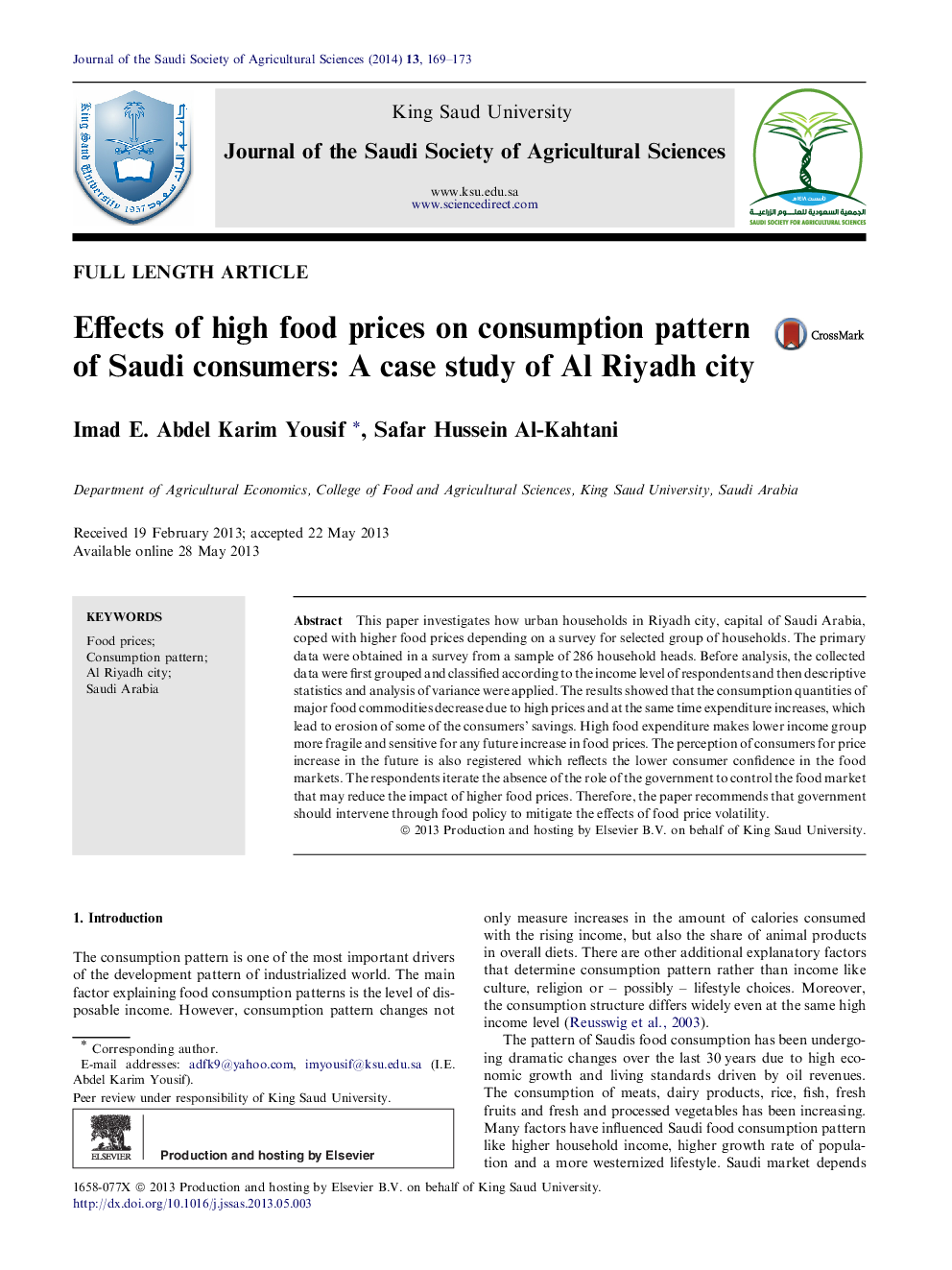| Article ID | Journal | Published Year | Pages | File Type |
|---|---|---|---|---|
| 4495615 | Journal of the Saudi Society of Agricultural Sciences | 2014 | 5 Pages |
This paper investigates how urban households in Riyadh city, capital of Saudi Arabia, coped with higher food prices depending on a survey for selected group of households. The primary data were obtained in a survey from a sample of 286 household heads. Before analysis, the collected data were first grouped and classified according to the income level of respondents and then descriptive statistics and analysis of variance were applied. The results showed that the consumption quantities of major food commodities decrease due to high prices and at the same time expenditure increases, which lead to erosion of some of the consumers’ savings. High food expenditure makes lower income group more fragile and sensitive for any future increase in food prices. The perception of consumers for price increase in the future is also registered which reflects the lower consumer confidence in the food markets. The respondents iterate the absence of the role of the government to control the food market that may reduce the impact of higher food prices. Therefore, the paper recommends that government should intervene through food policy to mitigate the effects of food price volatility.
